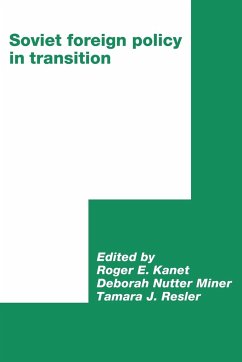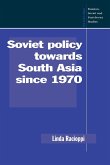The world has recently witnessed remarkable changes in Soviet foreign policy. Eastern Europe has sprung free of the country that held it in its grip for over forty years. The Soviet leadership has accepted the reunification of Germany and supported the US-sponsored resolution in the UN permitting the use of force in the Gulf against one of its former allies. Moreover, the leadership's quest for stability during a time of rapid technological, economic and political change has seriously weakened the position of the Soviet Union on the international scene. This timely volume assesses these dramatic changes. It chronicles the debate within the Soviet Union over the success and validity of perestroika and the 'new thinking' on foreign affairs, the policy alternatives supported by various groups within the elite and their likely impact on future policies. The authors, who comprise a broad range of leading analysts from Europe, North America, Africa, and Asia also provide specific regional and country case studies. They examine changes in the Soviet-East European relationship, Soviet policy towards Northern Europe, and the impact that shifts in Soviet policy are likely to have on a variety of developing countries.
Hinweis: Dieser Artikel kann nur an eine deutsche Lieferadresse ausgeliefert werden.
Hinweis: Dieser Artikel kann nur an eine deutsche Lieferadresse ausgeliefert werden.








